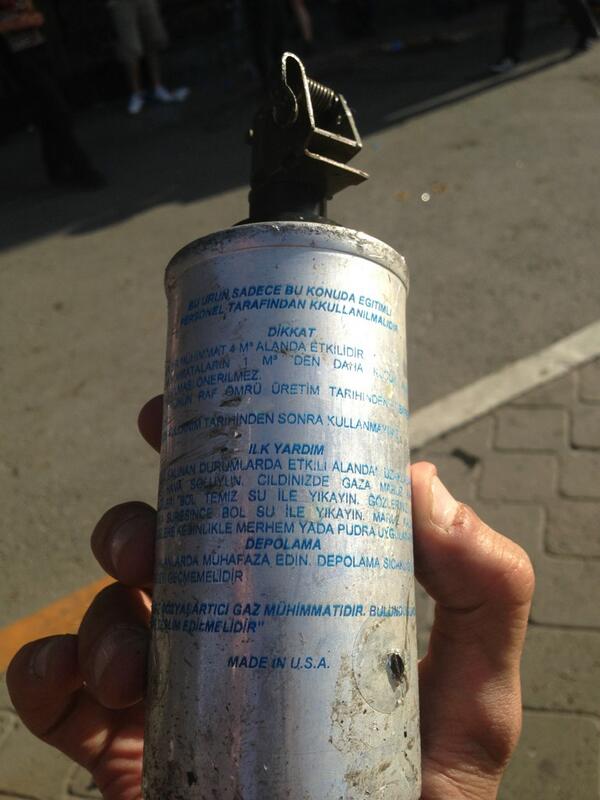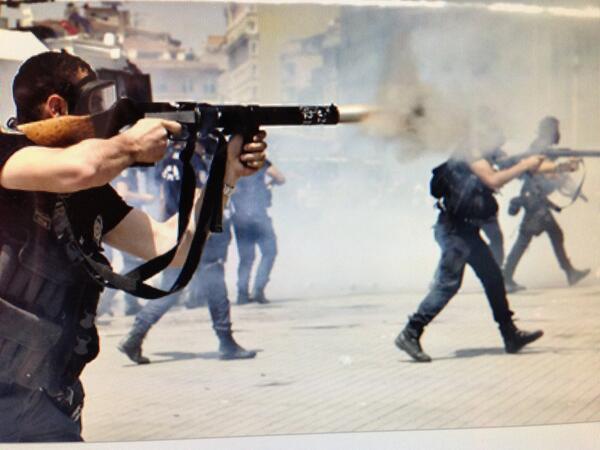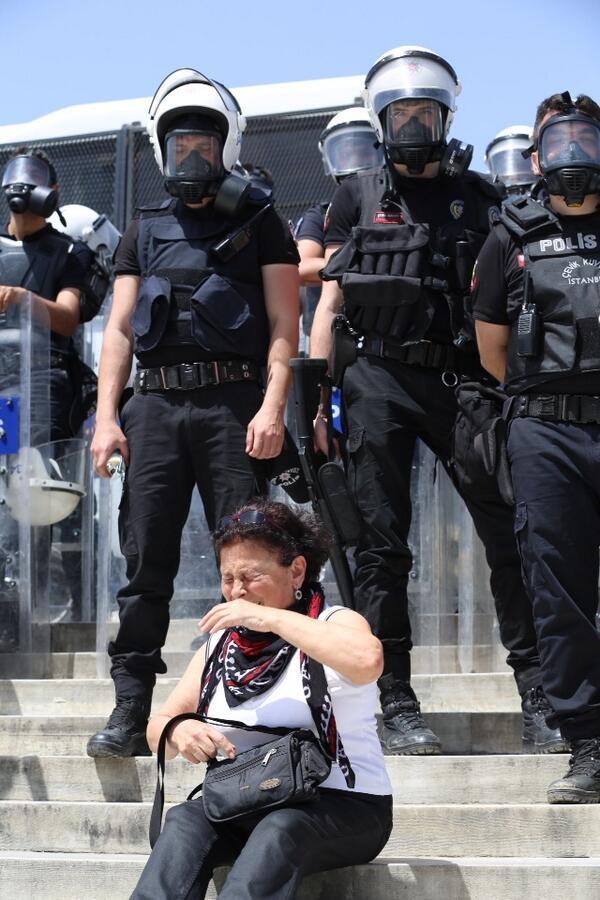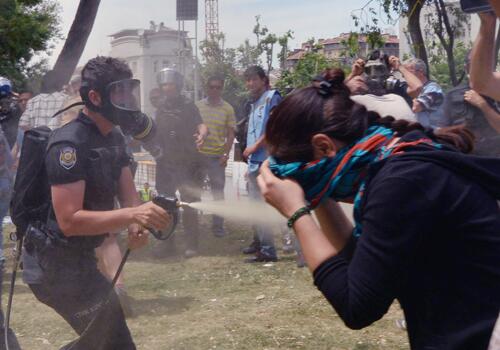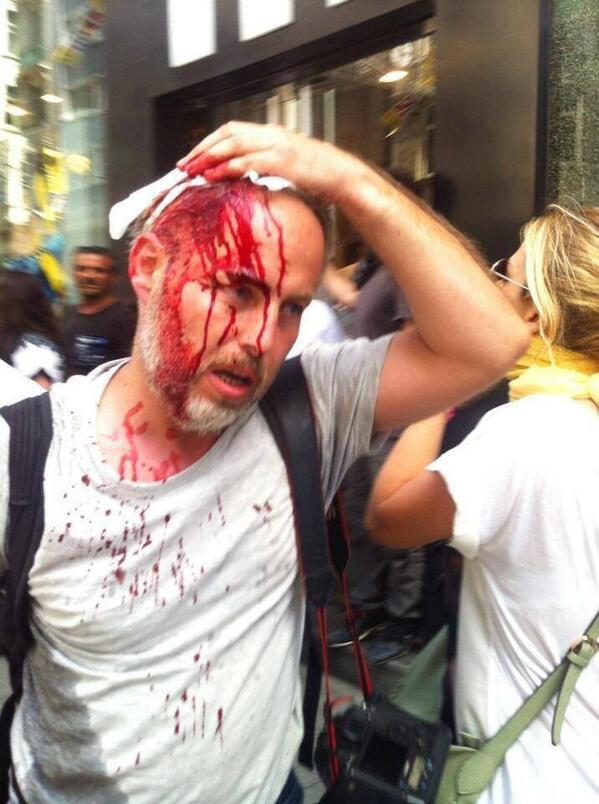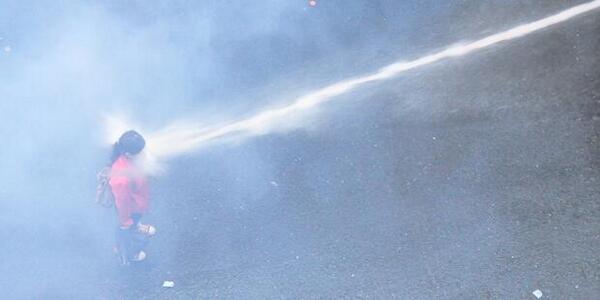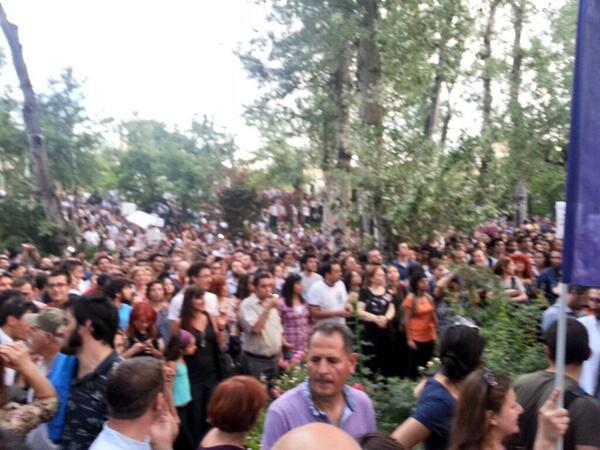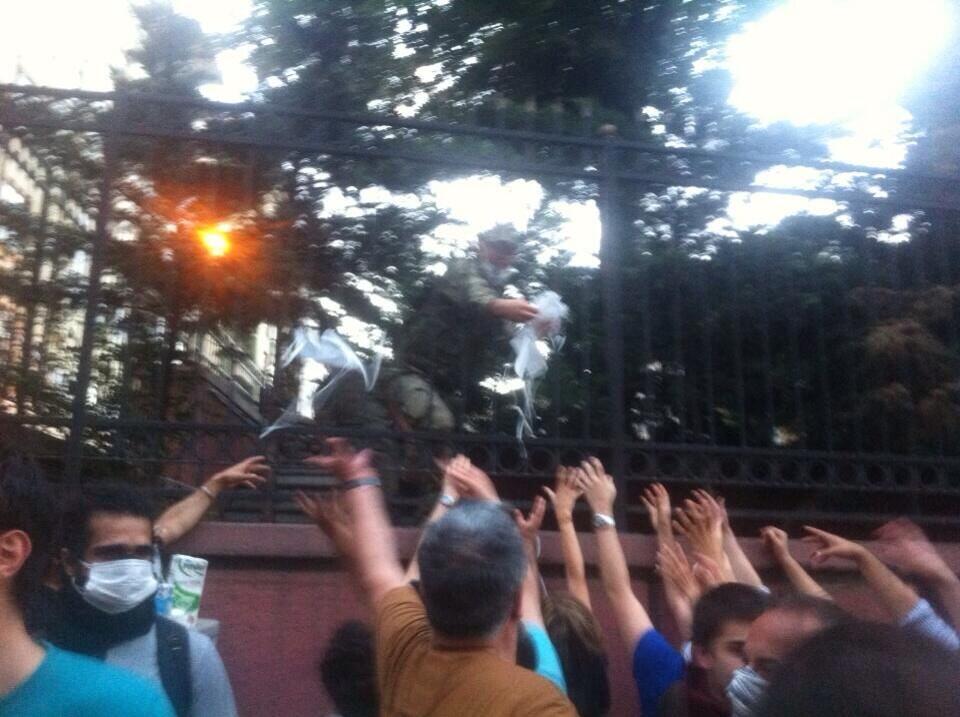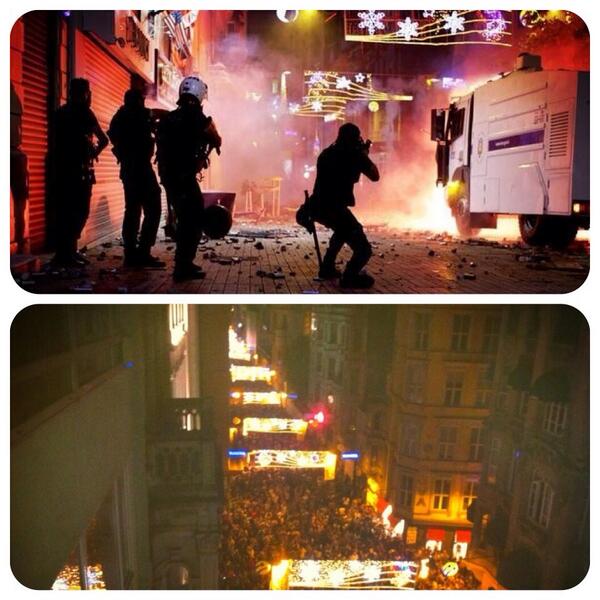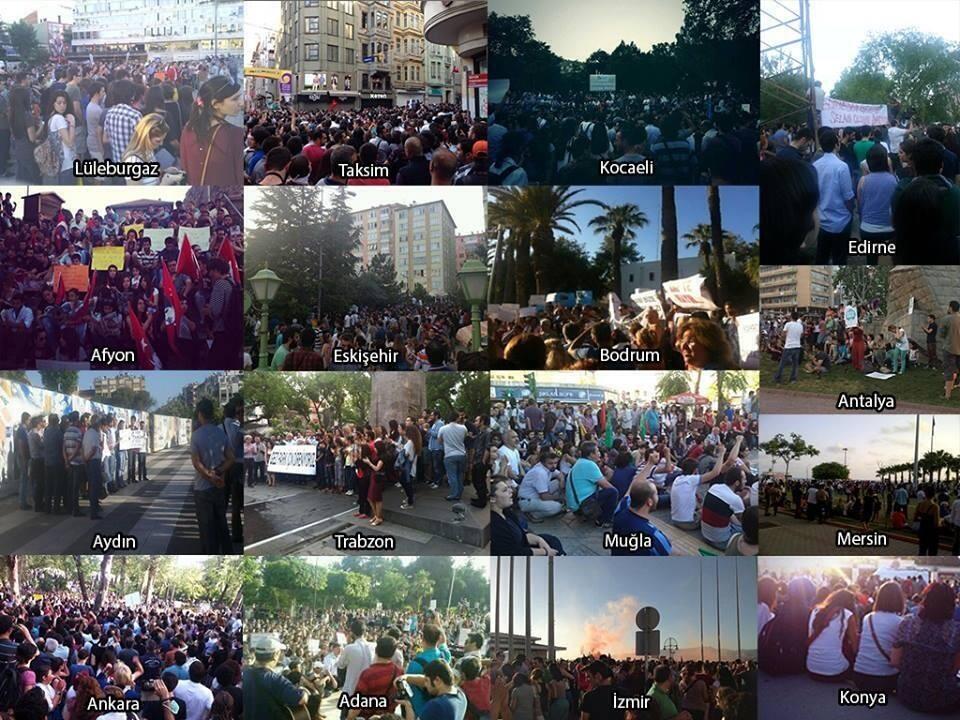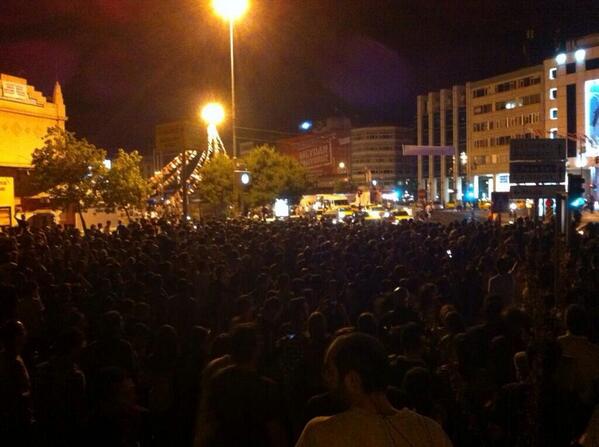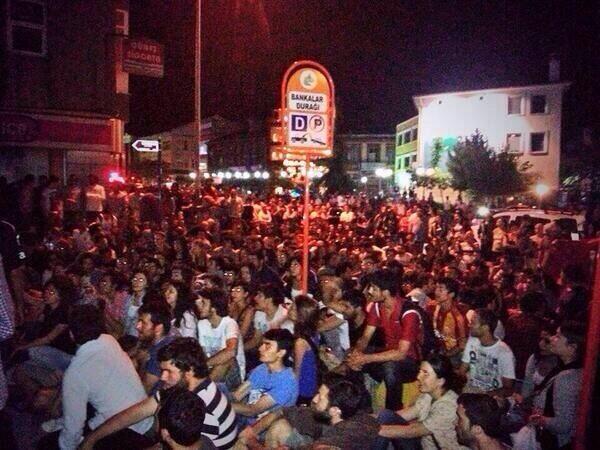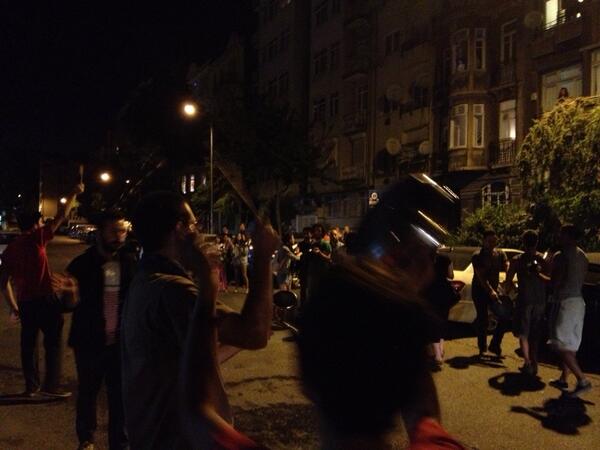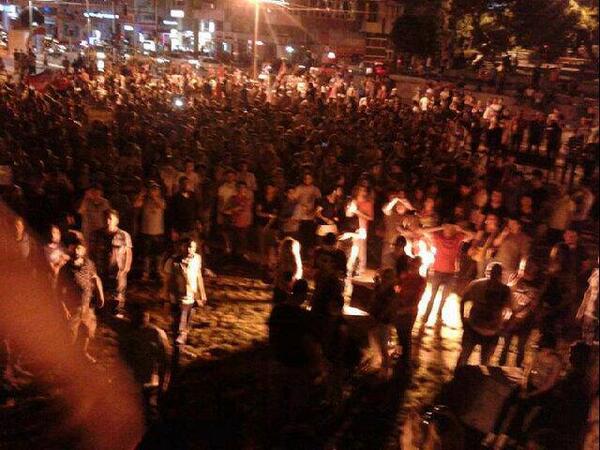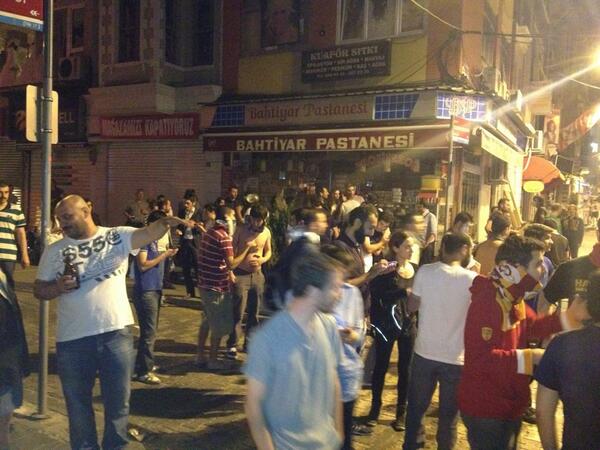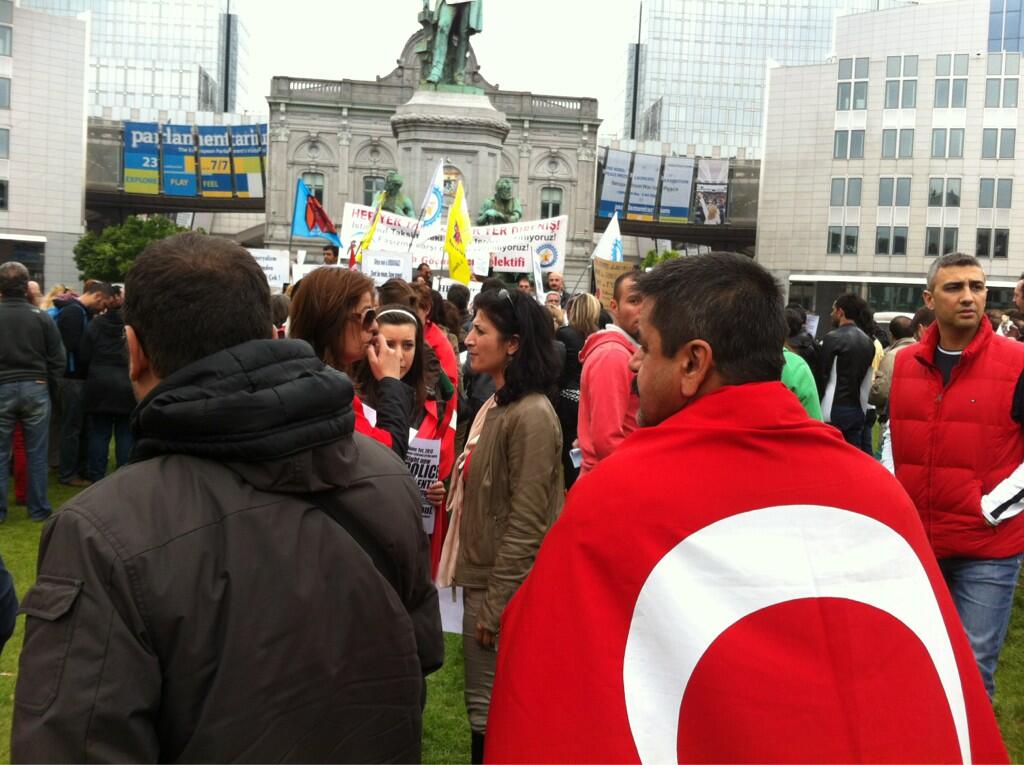Lilbitsnana
On TB every waking moment
Things started off in Egypt in Dec 2010/Jan 2011 and the toppling of governments and the term/prase Arab Spring took off.
Now, the phrase Summer of Discontent is starting to surface and being repeated where protests have/are taking places in various countries. Egypt is one, and now...Turkey. I suspect that like AS, this will end up being a worldwide Summer of Discontent. Once again, new riots/protests will start happening and some govs/leaders will not be able to remain in power and lots of people on both sides will die.
---------------------------
posted for fair use
http://www.reuters.com/article/2013/05/31/us-turkey-protests-idUSBRE94U0J920130531
Turkish police tear gas anti-government protesters
Related News
Egyptian tourist critically injured in Istanbul protests: medics
11:00am EDT
Analysis & Opinion
French gay marriage opponents stage another big Paris protest march
Prosperity without power
By Ayla Jean Yackley
ISTANBUL | Fri May 31, 2013 11:00am EDT
(Reuters) - Turkish police fired tear gas and water cannon on Friday at protesters occupying a park in central Istanbul, wounding scores including tourists in the harshest crackdown so far on days of anti-government unrest.
The protest at Gezi Park started late on Monday after developers tore up trees but has widened into a broader demonstration against Prime Minister Tayyip Erdogan's Islamist-rooted Justice and Development Party (AKP).
Friday's violence erupted after a dawn police raid on demonstrators who had camped for days in the park in anger at plans to build a shopping mall. Clouds of tear gas rose around the area in Taksim Square, long a venue for political protest.
Broken glass and rocks were strewn across a main shopping street. A group of primary school children ran crying from the tear gas while tourists caught by surprise scurried to get back to luxury hotels lining the square.
"We do not have a government, we have Tayyip Erdogan...Even AK Party supporters are saying they have lost their mind, they are not listening to us," said Koray Caliskan, a political scientist at Bosphorus University who attended the protest. "This is the beginning of a summer of discontent."
Riot police clashed with tens of thousands of May Day protesters in Istanbul weeks ago. There have also been protests against the government's stance on the conflict in neighbouring Syria, a recent tightening of restrictions on alcohol sales and warnings against public displays of affection.
"This isn't just about trees anymore, it's about all of the pressure we're under from this government. We're fed up, we don't like the direction the country is headed in," said 18-year-old student Mert Burge, who came to support the protesters after reading on Twitter about the police use of tear gas.
"We will stay here tonight and sleep on the street if we have to," he said.
An Egyptian tourist was in a critical condition after being hit by a police gas canister, Istanbul Medical Chamber board member Huseyin Demirduzen told Reuters. The 34-year-old woman was undergoing an operation after suffering a brain haemorrhage.
A total of 12 people, including a pro-Kurdish MP and a Reuters photographer, suffered trauma injuries and hundreds suffered respiratory problems due to the effects of tear gas during the clashes, Demirduzen said.
Some people were injured when a wall they were climbing collapsed as they tried to flee clouds of tear gas.
Amnesty International said it was concerned by what it described as "the use of excessive force" by the police against what had started out as a peaceful protest.
Interior Minister Muammer Guler promised that claims that police had used disproportionate force would be investigated.
Erdogan has overseen a transformation in Turkey during his decade in power, turning its economy from crisis-prone into Europe's fastest-growing. Per capita income has tripled in nominal terms since his party rose to power.
He remains by far Turkey's most popular politician, and is widely viewed as its most powerful leader since Mustafa Kemal Ataturk founded the modern secular republic on the ashes of the Ottoman Empire 90 years ago.
The unrest has not matched the mass demonstrations seen in some Arab or European countries in recent years, but it reflects growing opposition concern about Erdogan's authoritarianism.
DEFIANCE
Hundreds of military officers have been jailed for plotting a coup against Erdogan in recent years. Academics, journalists, politicians and others face trial on similar charges.
Erdogan has made no secret of his ambition to run for the presidency in elections next year when his term as prime minister ends, exacerbating opposition dismay.
"These people will not bow down to you" read one banner at the Gezi Park protest, alongside a cartoon of Erdogan wearing an Ottoman emperor's turban.
Postings on social media including Twitter, where "Occupy Gezi" - a reference to protests in New York and London last year - was a top-trending hashtag, and Facebook said similar demonstrations were planned for the next few days in other Turkish cities including Ankara, Izmir, Adana and Bursa.
"Kiss protests", in which demonstrators are urged to lock lips, had already been planned for Istanbul and Ankara this weekend after subway officials were reported to have admonished a couple for kissing in public a week ago.Erdogan is pushing ahead with a slew of multi-billion dollar projects which he sees as embodying Turkey's emergence as a major power. They include a shipping canal designed to rival Panama or Suez, a giant mosque and a third Istanbul airport billed to be one of the world's biggest.
Speaking just a few miles from Gezi Park at the launch on Wednesday of construction of a third bridge linking Istanbul's European and Asian shores, Erdogan vowed to pursue plans to redevelop Taksim Square.
Architects, leftist political parties, academics, city planners and others have long opposed the plans, saying they lacked consultation with civic groups and would remove one of central Istanbul's few green spaces.
(Additional reporting by Murad Sezer, Osman Orsal and Ece Toksabay; Writing by Nick Tattersall; Editing by Alistair Lyon)
Now, the phrase Summer of Discontent is starting to surface and being repeated where protests have/are taking places in various countries. Egypt is one, and now...Turkey. I suspect that like AS, this will end up being a worldwide Summer of Discontent. Once again, new riots/protests will start happening and some govs/leaders will not be able to remain in power and lots of people on both sides will die.
---------------------------
posted for fair use
http://www.reuters.com/article/2013/05/31/us-turkey-protests-idUSBRE94U0J920130531
Turkish police tear gas anti-government protesters
Related News
Egyptian tourist critically injured in Istanbul protests: medics
11:00am EDT
Analysis & Opinion
French gay marriage opponents stage another big Paris protest march
Prosperity without power
By Ayla Jean Yackley
ISTANBUL | Fri May 31, 2013 11:00am EDT
(Reuters) - Turkish police fired tear gas and water cannon on Friday at protesters occupying a park in central Istanbul, wounding scores including tourists in the harshest crackdown so far on days of anti-government unrest.
The protest at Gezi Park started late on Monday after developers tore up trees but has widened into a broader demonstration against Prime Minister Tayyip Erdogan's Islamist-rooted Justice and Development Party (AKP).
Friday's violence erupted after a dawn police raid on demonstrators who had camped for days in the park in anger at plans to build a shopping mall. Clouds of tear gas rose around the area in Taksim Square, long a venue for political protest.
Broken glass and rocks were strewn across a main shopping street. A group of primary school children ran crying from the tear gas while tourists caught by surprise scurried to get back to luxury hotels lining the square.
"We do not have a government, we have Tayyip Erdogan...Even AK Party supporters are saying they have lost their mind, they are not listening to us," said Koray Caliskan, a political scientist at Bosphorus University who attended the protest. "This is the beginning of a summer of discontent."
Riot police clashed with tens of thousands of May Day protesters in Istanbul weeks ago. There have also been protests against the government's stance on the conflict in neighbouring Syria, a recent tightening of restrictions on alcohol sales and warnings against public displays of affection.
"This isn't just about trees anymore, it's about all of the pressure we're under from this government. We're fed up, we don't like the direction the country is headed in," said 18-year-old student Mert Burge, who came to support the protesters after reading on Twitter about the police use of tear gas.
"We will stay here tonight and sleep on the street if we have to," he said.
An Egyptian tourist was in a critical condition after being hit by a police gas canister, Istanbul Medical Chamber board member Huseyin Demirduzen told Reuters. The 34-year-old woman was undergoing an operation after suffering a brain haemorrhage.
A total of 12 people, including a pro-Kurdish MP and a Reuters photographer, suffered trauma injuries and hundreds suffered respiratory problems due to the effects of tear gas during the clashes, Demirduzen said.
Some people were injured when a wall they were climbing collapsed as they tried to flee clouds of tear gas.
Amnesty International said it was concerned by what it described as "the use of excessive force" by the police against what had started out as a peaceful protest.
Interior Minister Muammer Guler promised that claims that police had used disproportionate force would be investigated.
Erdogan has overseen a transformation in Turkey during his decade in power, turning its economy from crisis-prone into Europe's fastest-growing. Per capita income has tripled in nominal terms since his party rose to power.
He remains by far Turkey's most popular politician, and is widely viewed as its most powerful leader since Mustafa Kemal Ataturk founded the modern secular republic on the ashes of the Ottoman Empire 90 years ago.
The unrest has not matched the mass demonstrations seen in some Arab or European countries in recent years, but it reflects growing opposition concern about Erdogan's authoritarianism.
DEFIANCE
Hundreds of military officers have been jailed for plotting a coup against Erdogan in recent years. Academics, journalists, politicians and others face trial on similar charges.
Erdogan has made no secret of his ambition to run for the presidency in elections next year when his term as prime minister ends, exacerbating opposition dismay.
"These people will not bow down to you" read one banner at the Gezi Park protest, alongside a cartoon of Erdogan wearing an Ottoman emperor's turban.
Postings on social media including Twitter, where "Occupy Gezi" - a reference to protests in New York and London last year - was a top-trending hashtag, and Facebook said similar demonstrations were planned for the next few days in other Turkish cities including Ankara, Izmir, Adana and Bursa.
"Kiss protests", in which demonstrators are urged to lock lips, had already been planned for Istanbul and Ankara this weekend after subway officials were reported to have admonished a couple for kissing in public a week ago.Erdogan is pushing ahead with a slew of multi-billion dollar projects which he sees as embodying Turkey's emergence as a major power. They include a shipping canal designed to rival Panama or Suez, a giant mosque and a third Istanbul airport billed to be one of the world's biggest.
Speaking just a few miles from Gezi Park at the launch on Wednesday of construction of a third bridge linking Istanbul's European and Asian shores, Erdogan vowed to pursue plans to redevelop Taksim Square.
Architects, leftist political parties, academics, city planners and others have long opposed the plans, saying they lacked consultation with civic groups and would remove one of central Istanbul's few green spaces.
(Additional reporting by Murad Sezer, Osman Orsal and Ece Toksabay; Writing by Nick Tattersall; Editing by Alistair Lyon)
Last edited:

